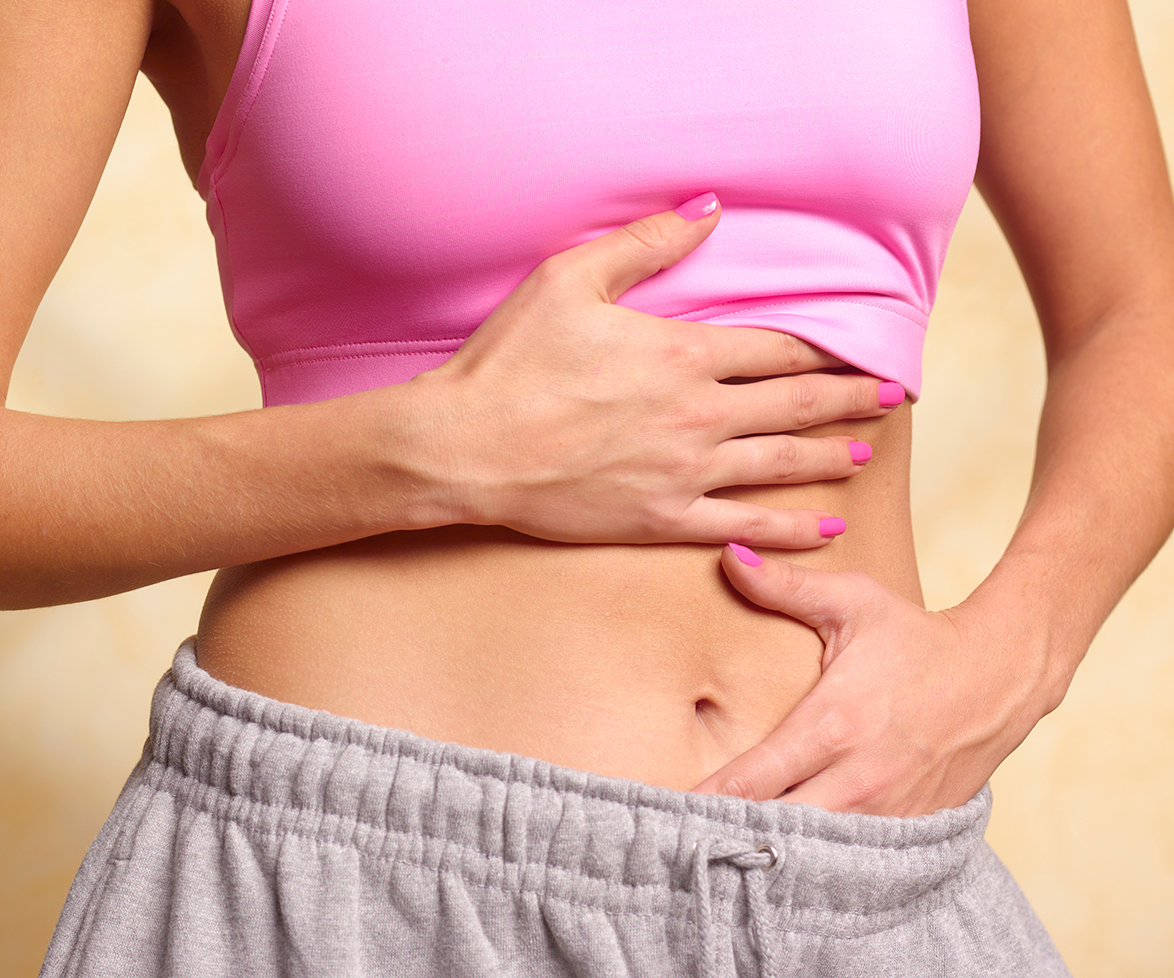“How good is feeling bloated?” said no one ever. The truth is feeling bloated is uncomfortable, annoying, all-consuming and sometimes painful. But, it’s also become the norm. According to research*, 87 percent of Australian women suffer digestive discomfort and symptoms such as bloating, making it an all too common complaint topic among friends, family and colleagues. All that talk however can lead to more confusion, so we asked dietitian Melanie McGrice to shed a little more light on bloating and gut health in general. Here, she shares 10 things we all need to know about bloating.
It’s pretty normal, but you don’t have to put up with it.
While bloating isn’t exactly comfortable, it is pretty common. It’s usually caused by nerve endings throughout the digestive system becoming overly sensitive as food moves through it. But, just because it is common, that doesn’t mean you should just try and ignore it — or that there’s nothing you can do to help improve bloating symptoms.
Probiotics are the key to easing digestive discomfort.
Probiotics are micro-organisms that live in your bowels and help to determine your health by breaking down food, extracting nutrients and producing some important vitamins. These ‘good’ bacteria also colonise the available area so that the ‘bad’ bacteria don’t have anywhere to multiply. Foods rich in probiotics, such as sauerkraut, tempeh, kefir and pickles, can be beneficial in reducing bloating, as can a probiotic yoghurt, which is easy to incorporate into your daily routine. Be mindful that not all yoghurts contain probiotics, however. It’s important to check the label carefully and look for one that’s scientifically proven to improve digestive discomfort, such as Activia. It delivers millions of ‘good’ bacteria to your gut — 4.4 million exclusive Bifidus ActiRegularis probiotics, in fact, that survive through the stomach reaching your intestines alive — to ease digestive discomfort and repair the imbalance caused by a poor diet or sickness.
Pregnancy can make you prone to bloating.
The older you get, the more likely you are to experience bloating. You’re also more likely to experience bloating after illnesses, travelling and during pregnancy.
Onions and garlic are not your friends.
Foods such as onion, garlic and apple juice can trigger bloating in some people. Avoiding these foods for a period of time, then reintroducing them slowly can help minimise bloating in some cases.
Watch out for toothpaste.
Foods high in fermentable sugars, such as bread and pasta, can exacerbate bloating in some people. However, these fermentable sugars can also be found in places like toothpaste, medications and nutritional supplements and can sometimes be a problem for people who are highly sensitive.
It can be a sign that you have a food intolerance.
Bloating can be a sign that you have a food intolerance. But, before cutting out whole food groups, make an appointment to see an Accredited Practising Dietitian. If your bloating is associated with severe constipation or diarrhoea, I’d also recommend that you see a dietitian for a full assessment.
Good gut health is based around five factors.
To optimise gut health, I recommend a diet rich in fibre, prebiotics from foods such as vegetables, legumes and fruit, probiotics from a probiotic yoghurt – add some to your breakfast cereal each day – water to flush out your system and plenty of physical activity.
Walking can do wonders for digestive discomfort.
If you’re looking to ease digestive discomfort fast, I’d usually recommend either an aperient to help get your bowels moving, an anti-gas medication or a supplement to help break down the short chain carbohydrates. Rubbing your tummy or going for a walk can also sometimes help to relieve digestive discomfort.
Stress has a significant impact on gut health.
Stress has been found to make nerve endings in the digestive tract more sensitive, causing greater levels of discomfort.
Avoid yo yo dieting.
Yo yo dieting weakens the muscles of the gut wall, causing sluggish movement throughout the digestive tract.
*Quantitative Fiftyfive 5 U&A study 2014. (n=1000) Sample nationally representative, women 17-80 years old.
Brought to you by Activia


